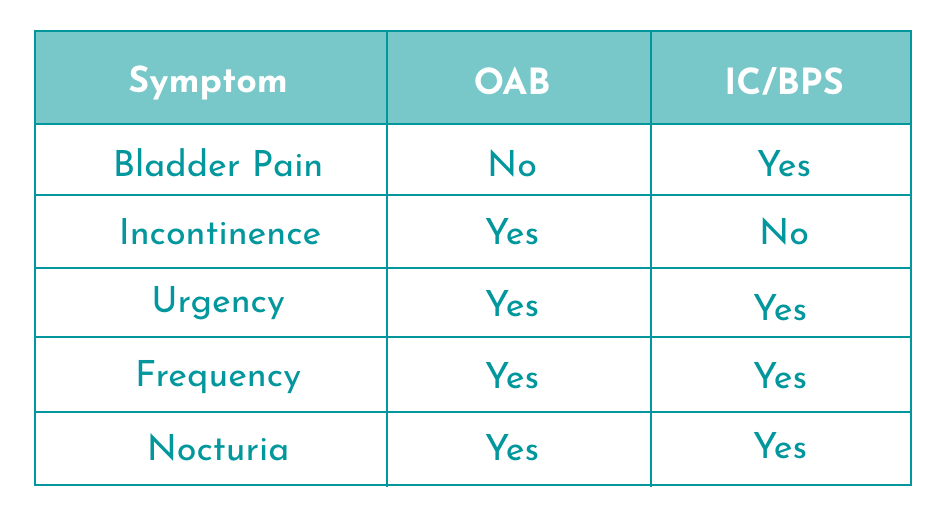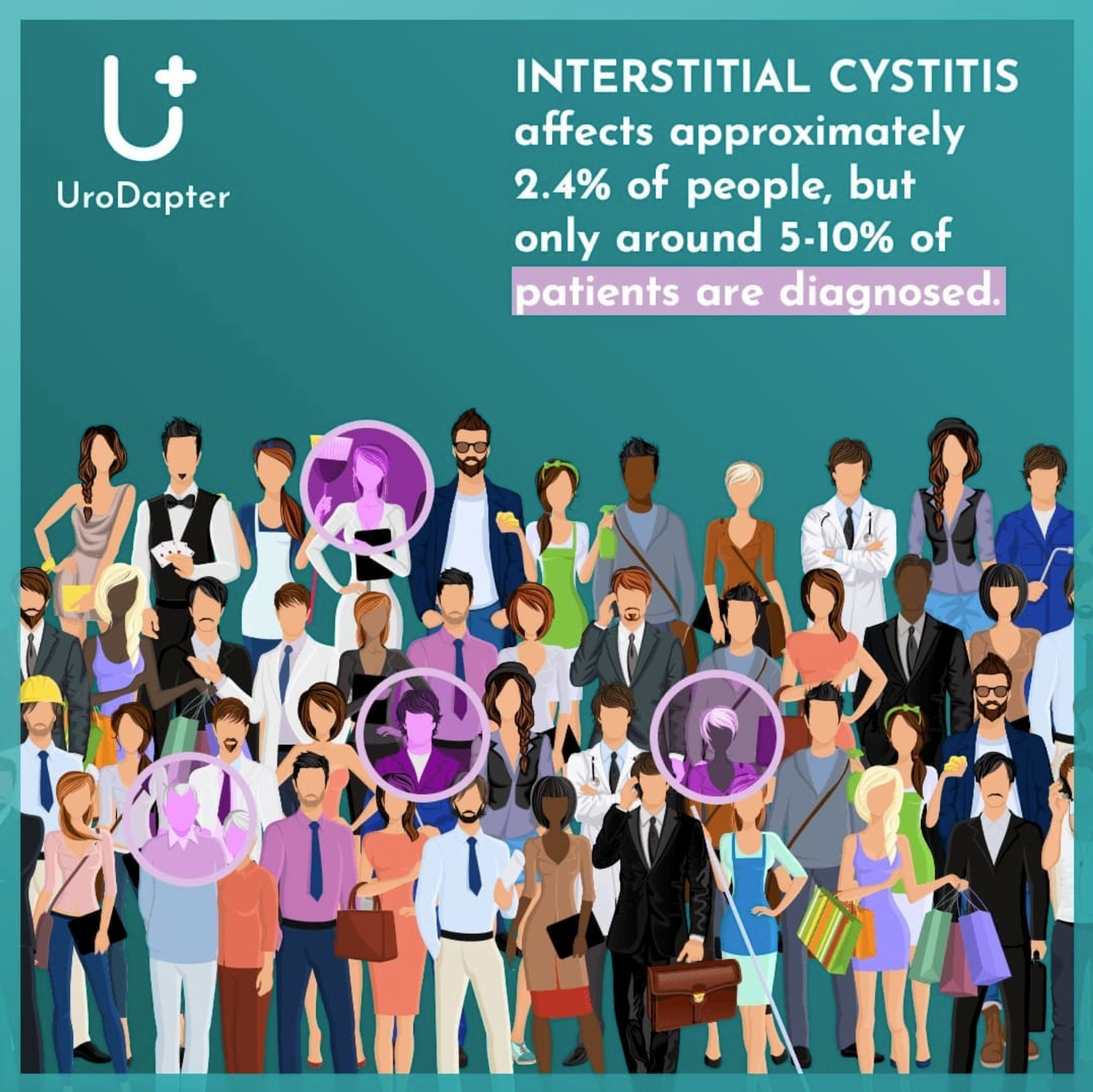How to be diagnosed / misdiagnosed?
The diagnosis rate of IC is less than 5-10%, even in countries with the most advanced healthcare. There is no other disorder of this severity with a lower diagnostic rate. This is especially significant since early diagnosis and treatment can prevent the development of severe symptoms.
We know how frustrating it is to go from doctor to doctor only to be dismissed or misdiagnosed. Diagnosing Interstitial Cystitis, or IC/BPS, can be difficult and often requires a specialist to get to the root of the problem. To help patients understand the diagnosis process and what IC patients often are misdiagnosed with, we talked to Dr. Lovász to put together some tips. We recommend first familiarizing yourself with symptoms of IC/BPS (read about it here) to better understand diagnosis. During our interview with Dr. Lovasz, he stated that there were some conditions IC patients can be misdiagnosed with.
Overactive Bladder
The symptoms of IC and overactive bladder (OAB) can at first seem very similar, as urinary frequency and urgency can be present in both conditions. However, most OAB patients experience incontinence – which is not typical in case of IC/BPS -, whereas IC/BPS is usually painful, but OAB is rarely so.

Chronic Urinary Tract Infections (UTIs)
Although in severe cases lower urinary tract infections can be just as painful as IC/BPS and the urinary symptoms can be severe, too, UTIsalways have a pathogen – whereas IC/BPS do not have any. These infections are usually caused by bacteria, but the actual pathogen can be some virus or fungus, too.
Other Inflammatory Conditions of the Bladder
There are other things that can cause inflammation too, such as certain chemical agents or certain drugs used in the chemotherapy of cancer conditions. Thus, anamnesis, a patient's account of their medical history, is as important as excluding other, not essentially bladder-related conditions to diagnose IC/BPS properly.
Why do misdiagnoses occur?
"The most common problem is that a doctor does not perform any laboratory examination of the urine and they immediately prescribe antibiotics"
According to Dr. Lovász, these mistakes often arise when patients turn to a gynecologist instead of a urologist about matters of the bladder. The lack of proper laboratory examinations is one of the major factors. He emphasized that patients often receive a series of antibiotic treatments that are not just unnecessary – since there are no bacteria present –, but also may experience serious side effects and worsening health condition: the antibacterial treatment itself acts as an irritative agent inside the urine. The chemical agent inside the urine can irritate the bladder even more than the disease itself! We encourage you to keep searching for the right diagnosis and find a specialist who can diagnose your condition. You can search for an IC specialist in your area using this database. Misdiagnosis can be discouraging, but don’t give up! There is a treatment plan out there for you.
Our advice: Voiding diary!
To diagnose Interstitial Cystitis, our company has developed a two-day voiding diary that can be done in a non-invasive way by patients in their own home. It provides a fairly accurate picture of the condition of the bladder; more precisely, its GAG-layer. The test simply measures the amount of urine at each voiding, comparing it to fluid intake. Contact us for more information: mail@urosystem.com
Yours truly,
The UroSystem Team
